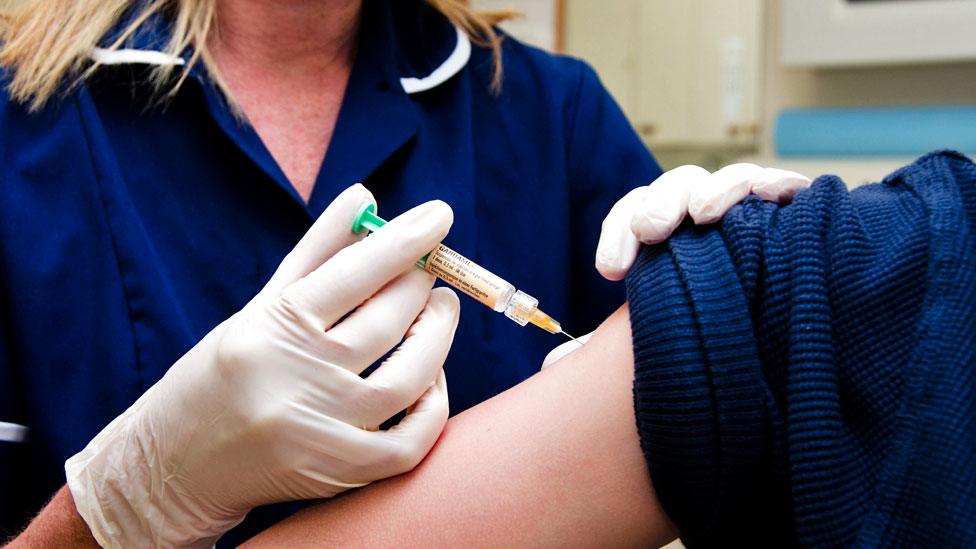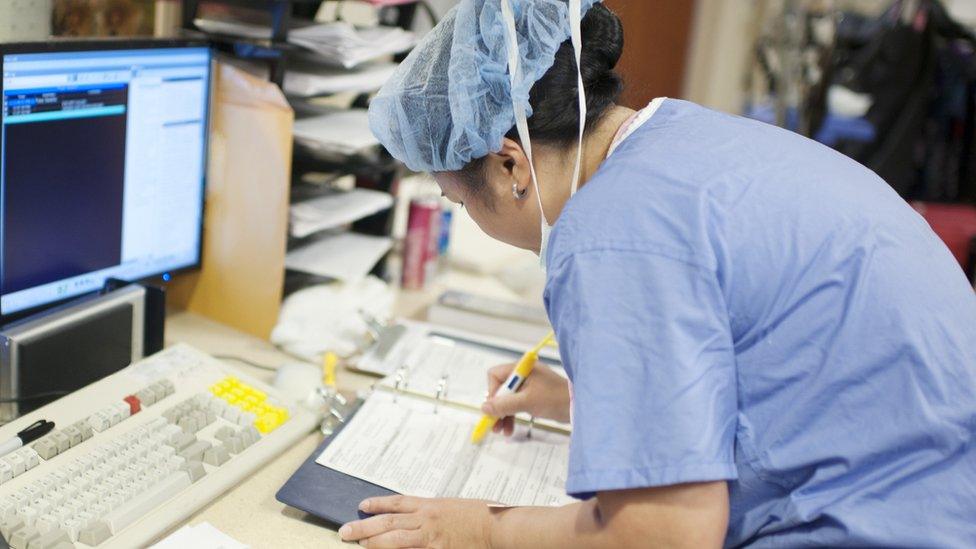Island 'on track' to stop cervical cancer by 2030

Guernsey's screening lead for Public Health said it was important for people to attend screenings for cervical cancer
- Published
Guernsey is on track to eliminate cervical cancer by 2030, according to the island's screening lead for Public Health.
NHS England has promised to eliminate cervical cancer by 2040, but Guernsey's Public Health believes it can achieve this locally 10 years sooner.
Diane Matthews said it was good news, but the trend needed to be maintained.
Katy Hill, who was diagnosed with cervical cancer in 2015, said it was "incredibly exciting".
The World Health Organization considers cervical cancer to be eliminated as a public health problem when there is an incidence rate lower than four per 100,000 women.
It also stipulates that 90% of girls must be fully vaccinated with the HPV vaccine by the age of 15, that 70% of women screened are using a high-performance test by the age of 35 - and again by the age of 45, and 90% of women with pre-cancer are being treated - and 90% of women with invasive cancer are being managed.
Ms Matthews said people attending their screening for cervical cancer was "the most important thing".
"We're hovering around 70% of women and people with a cervix attending for their screening, so actually I think if anything, that's the area we'd like to boost the coverage on," she said.
"Compared to having those few minutes of feeling slightly uncomfortable, the outcome is that it could save your life."
'Silent killer'
Ms Hill had a hysterectomy shortly after she was diagnosed with cervical cancer before it spread from her cervix.
She said her doctor had told her if she had waited any longer, even until her second reminder letter, it would have been a "very different story", as her results showed the cancer was on the cusp of spreading.
The mother of two said to be able to prevent cervical cancer was "a total game-changer".
She said: "At the point where I had my diagnosis, we didn't have the vaccine for HPV.
"I wasn't offered the vaccine, my generation rely solely on screening and early intervention, and early detection."
Ms Hill said: "Cervical cancer is a silent killer.
"You don't get symptoms until it's too late, so, we're really good at going to the GP if we have symptoms, but when there are no symptoms, it doesn't seem as important to go to some people, and I do hear that quite a lot.
"I think really, it's just about getting the message out there that by the time symptoms come , it is often too late, and that's why the screening is in place."
Follow BBC News South West on X (formerly Twitter), external, Facebook, external and Instagram, external. Send your story ideas to spotlight@bbc.co.uk, external.
Related topics
- Published14 October 2023

- Published23 January 2023

- Published16 January 2023
